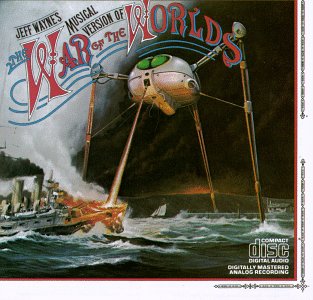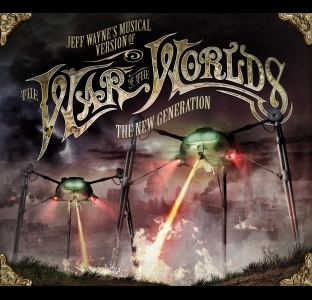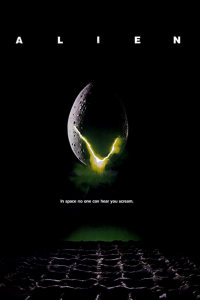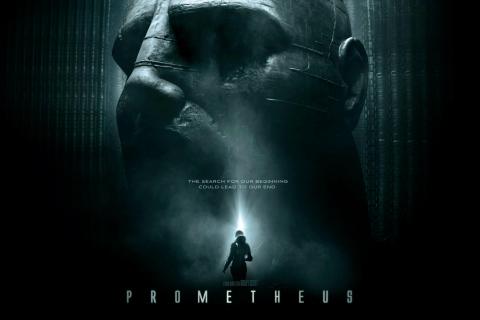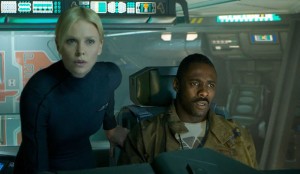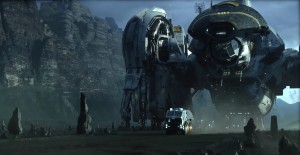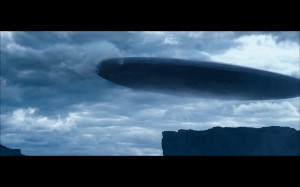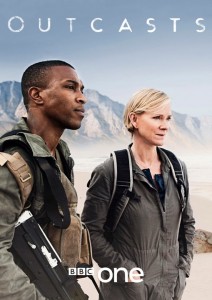Tag: scifi
Sam reviews: WOTW 2012
by ravenbait on Jan.04, 2013, under music, Reviews
![]() No one would have believed, in the last years of the 19th century, that human affairs were being watched from the timeless worlds of space. No one could have dreamed that we were being scrutinized as someone with a microscope studies creatures that swarm and multiply in a drop of water. Few men even considered the possibility of life on other planets. And yet, across the gulf of space, minds immeasurably superior to ours regarded this Earth with envious eyes, and slowly, and surely, they drew their plans against us.
No one would have believed, in the last years of the 19th century, that human affairs were being watched from the timeless worlds of space. No one could have dreamed that we were being scrutinized as someone with a microscope studies creatures that swarm and multiply in a drop of water. Few men even considered the possibility of life on other planets. And yet, across the gulf of space, minds immeasurably superior to ours regarded this Earth with envious eyes, and slowly, and surely, they drew their plans against us.
Thus speaks Richard Burton’s inimitable, mellifluous voice at the start of the 1978 Musical War of the Worlds, Jeff Wayne’s most famous creation. My mother has eclectic musical traits (a trait I am endlessly grateful to have either inherited or had inculcated) and a copy of this has been in her music collection for as long as I can remember. It may be a dreadful thing to confess, but this was my introduction to H G Wells and was one of my formative speculative fiction experiences. As a girl of primary school age, my initial reaction was one of awe: never would I consider bacteria the in the same way as I had. My mum has been known to tell family friends that my first comment was, “I’ll never put bleach down the toilet again.”
That’s what good speculative fiction should do. Change the way you think.
The sound effects, chilling in isolation and fed through the score until the guitars became gibbering Martian voices while the synthesisers spat blistering heat rays and spread shivering fronds of red weed across the soundscape, remain as effective now as they ever were. The actors and musicians, used to working live in front of theatre audiences and minus the visual extravaganzas now employed, conveyed their roles with conviction and feeling. The depiction of the Thunderchild crew sacrificing themselves and their ship to save the passenger liner is something I can clearly visualise to this day, despite never having physically seen more than an artist’s impression in the album’s accompanying booklet.
I can see an Ironclad warship going down under the irresistible assault of a Martian heatray, because Jeff Wayne’s composition utterly nails it.
Many years later I picked up an album called Ulludubulla Volume 2, which I reviewed at the time. There I said I didn’t see any reason not to update a musical, but overall the album didn’t really work for me. It was not, however, a remake of the original, but a series of tracks inspired by it.
2012 saw a brand new version of this iconic album hit musical theatres and CD/MP3. Richard Burton’s part is now played by Liam Neeson and David Essex’s artilleryman has been given to Ricky Wilson of the Kaiser Chiefs. Justin Hayward’s part is sung by Gary Barlow, who manages to sound like he’s mostly asleep and only doing it for the paycheque. Phil Lynott’s throaty, gargly Parson Nathaniel is now Maverick Sabre with some weird mishmash accent and the beautiful, emotive voice of Julie Covington has been replaced by that of Joss Stone, which is more operatic JCB than concerned but fatally optimistic angel.
The original score has been “updated” with some odd little riffs of electronica and bass, which serve no purpose other than to indicate that this is New! Improved! Hip! and On Trend!
“Hey kids! We know you like dubstep and psytrance these days, so we put in some tweaks just for you!”
Then there’s the script, which has also been altered. There’s an entire additional passage of exposition-heavy dialogue, in which the Journalist explains how the Martians gave up sex and got rid of bacteria. This is, obviously, based on the original work, but part of the joy of the original is that it stands on its own — there is no need to have read the book. When I heard this, I stopped what I was doing and stared at my player. “How in the hell did he find that out? He’s been trudging round a red-weed infested London trying to survive, not conducting scientific research into the mating habits and pathology of the alien invaders!”
I haven’t seen this in the theatre, where they have introduced whizzy special effects. I don’t especially want to now that I’ve heard it. The original didn’t need them, as it was carefully crafted to do without. The 2012 version has suffered from revision and, possibly, part of that is because there are whizzy special effects in the show.
Only one thing stood out as remarkable. Remember I was talking about Ulludubulla Vol. 2? That album starts with an interesting spoken word piece by Papa Ootzie, looking at the Eve of the War from the point of view of the Martians.
“The problem is, of course, the humans,” are the last words spoken in the epilogue, and they sounds suspiciously like a straight lift from the above track.
Unless you are the sort of person who buys things just to have them in the collection, I wouldn’t recommend this version. The original is by far superior in every way, from score to script to performance. Get a copy of that, instead.
Sam Reviews: Prometheus
by ravenbait on Jun.09, 2012, under movies
![]() I should make something clear from the very start: Alien was my diving board into the world of science fiction in film. It wasn’t ET, or Star Wars, or Star Trek. For me these were not science. They weren’t real. They were fantasies, soap operas, adventure tales. They belonged with Black Beauty, Bonanza and Scooby Doo. Even back then, as a girl learning the OILRIG mnemonic for chemical reactions (Oxidation Is Loss, Reduction Is Gain), I felt that science fiction was something edgier and harder than I was finding on the television or the movie screen. It was something I was only finding in books, where the mechanics and the plausibility couldn’t be glossed over with a veneer of special effects and explosions.
I should make something clear from the very start: Alien was my diving board into the world of science fiction in film. It wasn’t ET, or Star Wars, or Star Trek. For me these were not science. They weren’t real. They were fantasies, soap operas, adventure tales. They belonged with Black Beauty, Bonanza and Scooby Doo. Even back then, as a girl learning the OILRIG mnemonic for chemical reactions (Oxidation Is Loss, Reduction Is Gain), I felt that science fiction was something edgier and harder than I was finding on the television or the movie screen. It was something I was only finding in books, where the mechanics and the plausibility couldn’t be glossed over with a veneer of special effects and explosions.
In space no one can hear you scream.
That was it. Right there. I was yet to experience the magnificent silence of Kubrick’s 2001. All I knew was that space is a vacuum, sound can’t travel in a vacuum because it is a compression wave, not a transverse wave, and Star Wars had given me far too many space lasers going “PEW PEW PIH-PEW-PEW-PEW!” followed by mega-explosions you could hear if you were standing on the moon.
No. Just no.
The gritty, industrial, supremely plausible sets of Alien, accompanied by the claustrophobic performances of the cast and, of course, the ultimate female action role model of Ripley (notable for not screaming), got me hooked on science fiction in film. As such, the film occupies a particularly well-kept pedestal in my mental gallery of things that have shaped my life.
You will understand, then, that I went to see Prometheus with something akin to a religious person going to witness some form of Holy Visitation, and I will save you the trouble of reading further, and exposing yourself to the ensuing spoilers, by telling you that the experience was rather like a Druid going on a trip to Stonehenge and discovering that it’s just a bunch of big rocks. Everyone around you is swooning over the mystic energies and the swirling chaos of Mother Earth reaching up and imparting visionary experiences of the Universe and Being At One With Existence and you’re thinking that it’s a shame it’s so close to the traffic and it’s not nearly as big as you thought it was going to be.
The film is extraordinarily pretty. It’s full of pretty. There is nothing in it that is not pretty. The scenery is pretty. The spaceship is pretty. The crew are all handsome or beautiful. Even old Weyland would have been good-looking, if they stripped off the cosmetics to reveal Guy Pearce (because, you know, there is a massive shortage of aging actors in the world who could have played that role — Ian Holm is still working and that would have been delicious). The Engineers are reasonably low on the ugly scale. Tall, built like rugby players, with a cupid’s bow lip (the male equivalent of the Jolie beestung pout). Charlize Theron is in fantastic shape, Fassbender’s grooming was lampshaded in the first section of the film — it’s all, you know, pretty.
Maybe that was part of the problem. I distrust pretty. Anything that pretty has to be distracting you from something and, when it comes to movies, it’s usually the story.
And, yes, there we go, the plot has so many holes in it you could use it to drain pasta. The characterisation of most of the characters bar the main four is so weak they might as well have been robots — there is little interaction, no badinage, nothing to distinguish them from NPCs at all. Plus, it makes the fatal mistake of a science fiction film: it gets the easy facts wrong.
Spoilers follow.
The trip to find their makers starts with archaeologists uncovering a cave painting on the Isle of Skye and dating it to a time so close to the last major glaciation that the idea of anyone being there to paint it stretches plausibility past the Young’s modulus. One should also note that the evidence is unclear as to whether modern humans (as opposed to genetically not-identical Neanderthals) were in the UK at all 35,000 years ago. That is just the first of the WTF moments that had me motorboating like 4hp Evinrude two-stroke on a bad oil/petrol mix. There was the instant carbon dating on an alien planet where the CO2 isotope ratio had not been characterised. There was the thing with the head and the electric re-animation — seriously, what was that all about? You cannot trick a head into thinking it’s alive by tickling the vagus nerve with a purple wand. Really, you can’t.
There were others. Oh yes, there were others. Like how the ship was equipped with an autodoc capable of performing any conceivable type of surgery, but which couldn’t deal with having a female patient. Because it was calibrated for a man. I know that was supposed to make the audience ask why it would be for a man when it was supposedly Vickers’s autodoc, but flagging the presence of someone on board we didn’t know about was better done by David’s conversation with Weyland over the neural link, rather than asking us to believe something so advanced couldn’t re-calibrate itself. It was one of the many foreshadowing points throughout the film, the most t-shirt worthy of which was Chekov’s Space Squid (I know it’s not strictly speaking a Chekov’s anything, as it was hardly an irrelevant detail, but Foreshadowing Space Squid is more of a band name than a t-shirt).
Scott’s film has won praise, and I’ve even seen people accuse those who don’t like it of being stupid, of failing to “get it”. Well, hands up. I failed to get it. Oh I got the whole “be careful what you wish for” fable, and I don’t have a problem with a religious scientist. I have a problem with a scientist who is not only an archaeologist but also a forensic xeno-pathologist, because the level of experience needed for that level of expertise in both is not realistically achievable in someone of Shaw’s age.
There’s an automatic defensive reaction from writers who have honed their craft to people suggesting writing is just something you can do; that anyone who can string a few words together deserves to be published. I understand. When you’ve worked at your craft that effort should be recognised. But I have a huge beef with writers inventing characters who are polymaths in specialisations. It cheapens the work and effort of scientists who have spent decades achieving that expertise. It’s almost as bad as when people think their opinion on a scientific topic is as valid as an expert’s because they’ve seen a Horizon documentary about it or read the wikipedia article. I could have understood David being the one to examine the head, just as Ash had been the one to conduct the examination in Alien, but why get Shaw to do it? Why was their medical officer less skilled than their archaeologist?
Why would a bunch of scientists head 4 years into space to an unknown planet without finding out why they were going and what part of their expertise would be required? Why was any one of the other individuals picked? We didn’t ever get to find out enough about them to know, or even to care about their eventual fate. Was their biologist picked for his stupidity? What sort of biologist was he anyway? What sort of geologist was Fifield? Or was he picked for his hair-trigger temper and his tattoos? When the biologist and the geologist said they were going back to the ship, how come they ended up wandering around in the tunnels? The entire crew seemed to have been chosen according to the criteria of a reality-TV show rather than a science expedition, which makes me wonder if the big secret was that Weyland had also sold rights to a television company.
This was a science-fiction film that didn’t pay attention to the science.
How did they happen across the place where the plot was scant minutes after entering the atmosphere? How did a ship that shape and size carry enough fuel to manage landing and take-off? How did the Space Squid get so big with nothing to eat? The original Alien got big by nomming upon the crew of the Nostromo. There’s a conservation of mass issue, there, unless the Space Squid ate the autodoc. How did Shaw manage to belay the robot down a cliff with nothing holding her lower abdomen together bar a few staples on the outside?
There were many other questions.
Prometheus was billed as a film that would make the audience question, and I did. What it didn’t do was make me ponder the big questions of who we are as a species and how we came to be here. It didn’t make me feel like re-reading Chariots of the Gods (although, to be fair, there’s not much that would because it’s drivel). I suspect that the questions we were supposed to focus on were those to do with our evolution. How come the Engineers’ DNA matched ours exactly when our DNA differs from a chimp’s by 1% and a gorilla’s by 2%? Did they seed all life on earth and we failed to evolve? Or was Scott implying that we somehow evolved from a squiggly strand of denatured alien DNA to match those aliens in every genetic detail (but not in looks, though, because we don’t live in Space Heaven and there’s that whole nature-nurture thing) and that was why they were coming to wipe us out? Were we too much like them? Did they see us as competition? Did they think that one species like them in the Universe was already too much? Was this a film about hubris? Arrogance?
I think it was. And, in a way, it was successful at that, because there is an arrogance in the implication we are supposed not to notice or care about the basic errors and implausibilities. I don’t mean things like the technology or the idea that we could travel so far in such a short time: I’m talking about the little things, the things that should not have been wrong, that could have been right with a little more thought or care.
To get back to where I started this, it was when I started comparing this film to Alien that I began to grok what bothered me so much about it. Shaw’s painfully extended battle with her unwanted pregnancy did not come across as plot but as fanservice. Ripley, arguably Hollywood’s most significant strong female character, died “giving birth” to an Alien Queen. Shaw cut the Space Squid out with a device meant for a man and killed the Engineer with it. Take that! Shaw’s sterility wasn’t really a vital part of her character motivation, because other than a brief, weepy argument with Holloway it didn’t have any effect on her behaviour. Rather it seemed to reflect Ripley’s forced state of childlessness caused by decades lost in hypersleep and the loss of Newt. David wasn’t a Data-like prototype but a fully-fledged, functioning robot who seemed far in advance of either Ash or Bishop; and who possessed a self-awareness that allowed him to distinguish himself from humans — and consider himself superior. Shades of Alien: Resurrection there. Prometheus riffed so hard on the franchise that the story, the characters and the setting came across like fan-fiction written by someone who thought the original stuff was so brilliant it didn’t matter if this new story was full of holes left by jamming his favourite elements together in a big pot and not cooking them properly.
I thought Theron and Fassbender were great, Rapace did what she could with a character that needed to be much better written, Marshall-Green was left treading water with a character that lacked any believable sense of conviction and Elba managed to put more character into 3 lines of dialogue than the other NPCs had between them. The opening sequence was breathtaking, and my fangirl hard-science squee was jumping up and down in excitement at the vapour curling over the lip of the giant flying saucer. I just wish the rest of the film had followed through on that promise.
You may feel differently, but I like a bit more science in my science fiction.
Misfits of Science
by ravenbait on Feb.11, 2011, under Reviews, television
![]() Outcasts is the BBC’s new flagship science fiction drama for the adult audience (I am assuming that Doctor Who remains the flag-bearer for science fiction in general). It follows the various stories of a group of people who are settlers on the planet Carpathia, after some so-far unspecified calamity on Earth made it necessary to evacuate. At the time the series starts the main characters have been there for ten years and the only known surviving transport ship is about to try to land on the surface, bringing with it the last influx of fresh blood the settlers are ever going to see. After this, they are on their own.
Outcasts is the BBC’s new flagship science fiction drama for the adult audience (I am assuming that Doctor Who remains the flag-bearer for science fiction in general). It follows the various stories of a group of people who are settlers on the planet Carpathia, after some so-far unspecified calamity on Earth made it necessary to evacuate. At the time the series starts the main characters have been there for ten years and the only known surviving transport ship is about to try to land on the surface, bringing with it the last influx of fresh blood the settlers are ever going to see. After this, they are on their own.
Carpathia is an Earth-like planet, named after the ship that came to the rescue after the Titanic disaster. No attempt has been made to make the setting seem alien, other than something called a “white-out”, in which presumably tidal forces from the planet’s moon cause what would appear to be a dust storm on steroids. They say it’s something to do with the moon, anyway. In the two episodes so far we have had bad science (aforementioned white-outs and something called deep brain visualisation, in which the subject sits in a special chair and his memories can be seen on the big screen) and good science (an excellent scene in which the teacher was describing the Goldilocks Zone to a class of children). It is therefore not what I would call hard science fiction, as it is the sort of science fiction I can demolish with two diagrams and a joke. A lack of hard science isn’t necessarily a negative criticism, I like soft science fiction as much (and occasionally more than) the next person. However I dislike science fiction that presents itself as hard and then widdles all over itself with hand-waving and dodgy research, not to mention something I saw done in Until the End of the World.
As far as main characters go, I was delighted to see very strong females in the early sections of the first episode. One of the reasons I like science fiction so much is that it has a track record of strong female characters. One of my earliest introductions to strong women was Dayna from Blake’s 7 — an assertive, competent, highly-skilled warrior who took no nonsense from anyone (and whose attractiveness usually took a back seat to the fact that she kicked arse).
Stella Isen, played with usual competency by Hermione Norris, is the Head of Security. Fleur Morgan (Amy Manson) is one of her officers. Both started out well, but Stella’s role quickly became that of the obsessed mother, while Fleur’s maternal instincts were also called upon before the first episode was halfway done when her best friend’s husband went a bit nuts, beat his police officer wife mostly to death, then took off into the wilderness with his son.
At which point my face did this:
So we’ve passed the Bechdel test early and now we’re going to ignore the whole bucking of the gender-bias trend and relax into the girls like babies and boys like guns model. I see.
By episode two the writer, Ben Richards, has made his premise for the series not only perfectly clear by way of storytelling, but also explicit in the dialogue: can humans truly live together in peace? Outcasts is a social pressure-cooker: the problem with it isn’t that this is a bad idea, but that Richards has come to it with the answer already and has arranged everything so that the story can’t fail to produce that answer.
The divisions of labour between the various sub-groups are artificial, counter-productive, and I can’t for the life of me imagine any settlement group on a distant planet trying to work that way. The method of introduction for the various plot points feels like shoehorning them in to serve the underlying premise, rather than things that might have happened and the consequences that ensued. While I enjoy the fact that there is little in the way of unnecessary exposition, I cannot get past the idea that the structure of the society there is implausible and thus everything that happens is difficult to believe on principle.
This is, in short, one of my pet hates: plot driving character, and in this case it extends to the very nature of the community. The desired conflict will not happen without imposing certain conflicts that come across as terribly unlikely with a few moments of thought about how people would actually behave in such an environment.
It is drama. That it takes place on a different planet is simply a device. Even the use of genetic modification is there to define an us-and-them conflict. They could have done the same by punting the characters a couple of hundred years back in time, sticking them somewhere remote and picking some arbitrary differentiation.
So, yes. The only thing that defines this as science fiction is that there are women doing what is usually thought of as a man’s job. It amuses me immensely that writers still find the inclusion of women who are taking on roles traditionally performed by men to be an easy way of saying “LOOK. THIS AM BE THE FYOOOOOTYOOOOOR! IN SPACE!”
But it’s also somewhat tragic.

